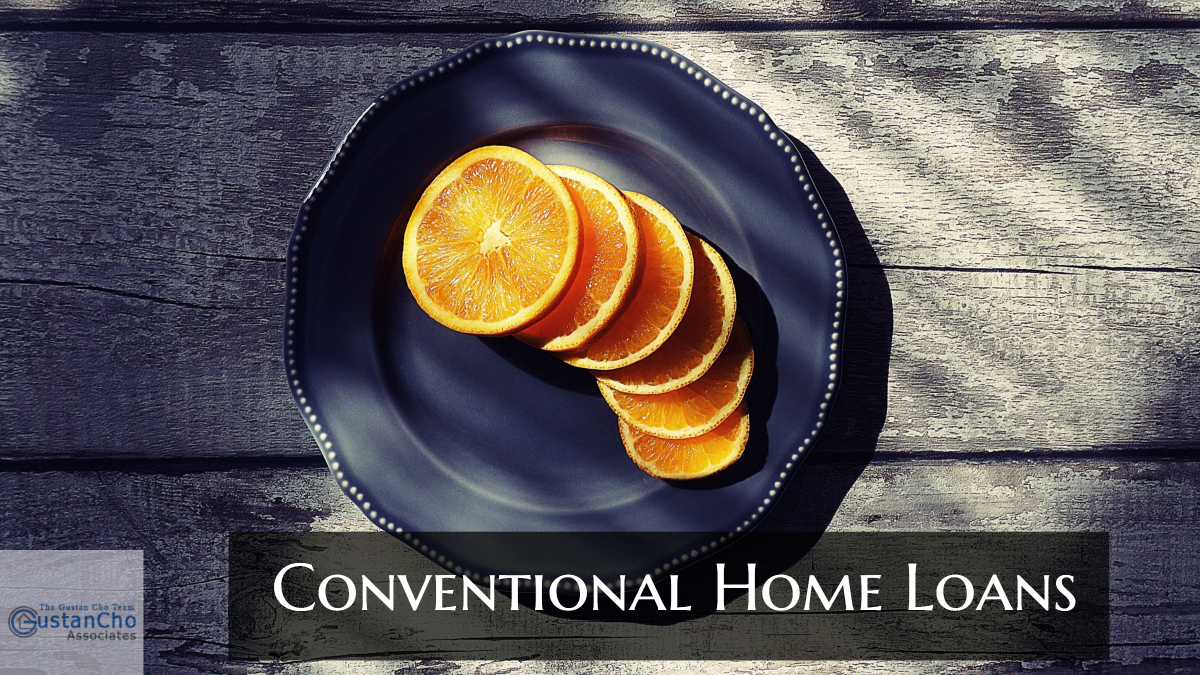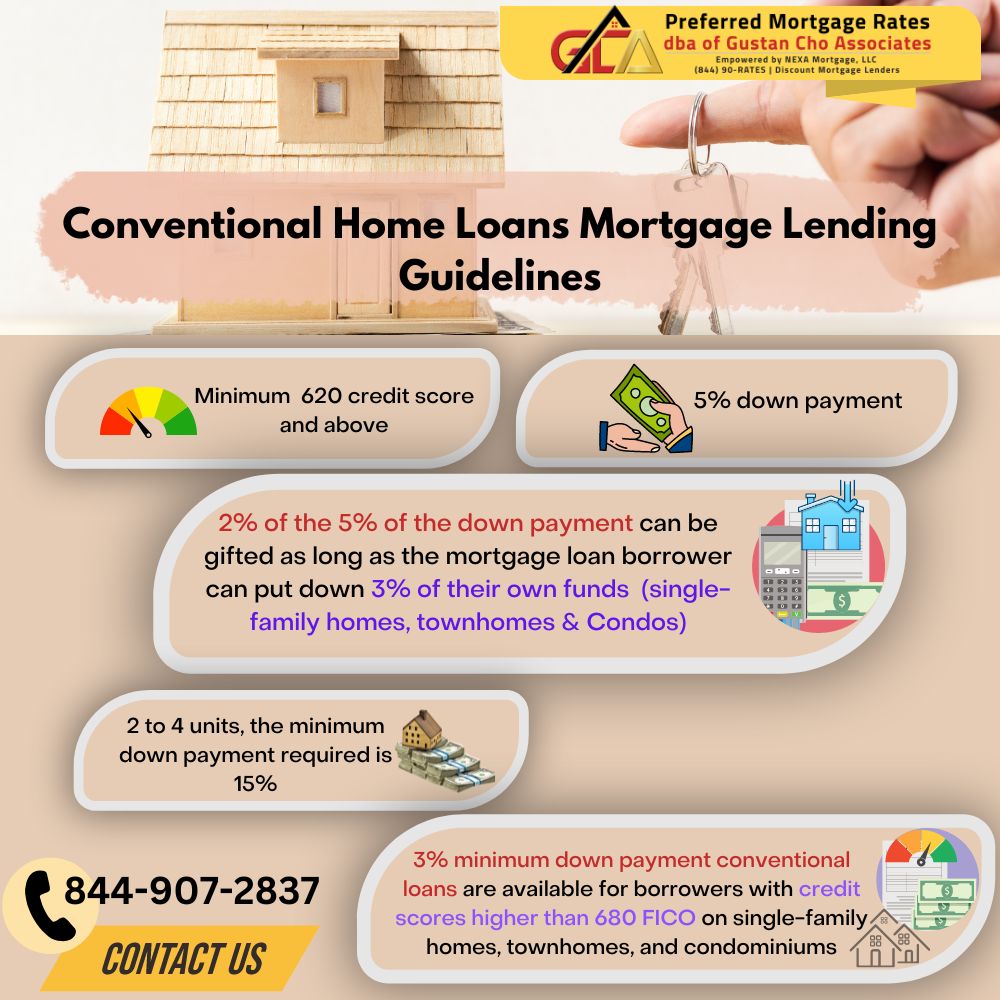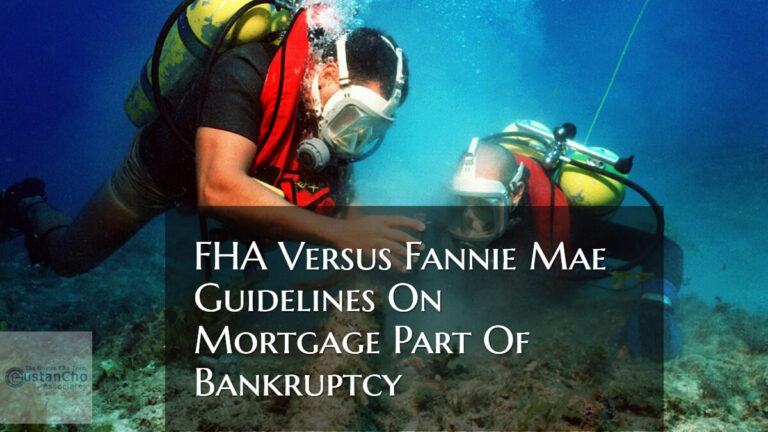Conventional Home Loans Mortgage Lending Guidelines

This BLOG On Conventional Home Loans Mortgage Lending Guidelines Was UPDATED On January 2nd, 2019
For those with higher credit scores and lower debt to income ratios, conventional home loans may be a better option than FHA loans.
- Both conventional home loans and FHA loans have advantages and disadvantages
- FHA loans are a better mortgage loan program for those who had a recent bankruptcy, foreclosure, or have a higher debt to income ratios
- A major disadvantage with FHA loans that the annual mortgage insurance premium of 0.85% can never be canceled on 30 year fixed rate mortgage loans
- The only way to get out of paying the annual mortgage insurance premium is to pay off the FHA loan
- With conventional loans, the private mortgage insurance premium depends on several factors such as credit scores, type of property, and loan to value
- Private mortgage insurance on conventional loans can be canceled once the loan to value of the subject home is at 80%

In this article, we will cover and discuss Conventional Home Loans Mortgage Lending Guidelines.
Guidelines For Conventional Loans
Conventional Home Loans are not government loans and are not guaranteed by the government. Conventional Loans need to meet Fannie Mae and/or Freddie Mac Guidelines in order for the lender to sell funded loans on the secondary market.
Here are the guidelines on conventional loans:
- Minimum 620 credit score and above
- However, the higher a borrower’s credit scores, the lower the mortgage rates
- Most banks and mortgage lenders max the back end debt to income ratios to 45%.
- We have conventional loan programs that will allow up to 50% Debt to Income ratios
- 5% down payment conventional loans available for those with a minimum credit score o 620 or higher
- 2% of the 5% of the down payment can be gifted as long as the mortgage loan borrower can put down 3% of their own funds (single-family homes, townhomes & Condos)
- 2 to 4 units, the minimum down payment required is 15%
- 3% minimum down payment conventional loans are available for borrowers with credit scores higher than 680 FICO on single-family homes, townhomes, and condominiums
- No condotels or non-warrantable condos
- Condotel Loans and non-warrantable condo portfolio loans are available as well
- No decs and bylaws required, minor litigation allowed on condos
- Borrowers Owning 5 -10 Financed Properties Accepted
- Delayed Financing…Borrowers purchased home for cash can do immediate cash-out refinance on Primary, NOO or 2nd homes
- Non-Permanent resident
Lender Paid Mortgage Insurance Conventional Loans
We offer conventional home loans that do not require the mortgage loan borrower to pay the private mortgage insurance premiums. For those who choose not to pay the private mortgage insurance premiums on 3% or 5% down payment conventional loans, the borrower needs to have a minimum credit score of 680 FICO and a debt ratio no higher than 45%. These unique conventional loans are called LPMI conventional loans. LPMI stands for Lender Paid Mortgage Insurance conventional loans.
What Are The Eligibility Requirements And Guidelines On Conventional Loans
What Are Conventional Loan Requirement:
A Conventional Loan is a residential mortgage loan that is not insured or guaranteed by the federal government. Conventional Loan Requirements generally follow mortgage guidelines administered by government-sponsored enterprises, also known as GSE. Examples of Government Sponsored Enterprises are mortgage giants Fannie Mae and Freddie Mac. There are two categories of Conventional Loan Programs and Conventional Loan Requirements. The first is called conforming conventional loans which are conventional loans that follow the mortgage lending guideline standards that are set by Fannie Mae and Freddie Mae. In this article, we will cover and discuss conventional loan guidelines.
What Are Non-Conforming Loans
Non-Conforming Loans do not meet the mortgage lending guideline standards of Fannie Mae and/or Freddie Mac. The reason, why conventional loans are called conforming loans, is because they need to conform to Fannie Mae and/or Freddie Mac Guidelines. In order for lenders to be able to sell conventional loans on the secondary market after they fund Fannie and/or Freddie, they need to conform to Fannie/Freddie Guidelines. If they do not conform, Fannie/Freddie will not purchase them. Non-QM and Alternative Financing Mortgage Programs are not sold to Fannie Mae or Freddie Mac and are often referred to as non-conforming loans.
Differences Between Conforming Versus Government Loans
Government Loans are the following:
- FHA Loans
- VA Home Loans
- USDA Loans
The above government agencies guarantee lenders of government loans in the event borrowers default and the property goes into foreclosure. Due to the government guarantee, lenders are able to offer low down payment and/or no down payment at very low-interest rates on government loans.
Differences Between Government And Conforming Loans
There are many differences between Conventional and FHA loan programs. There are times where borrowers that is qualified for a conventional loan needs to choose an FHA loan instead. There are cases where borrowers need to choose a conventional loan.
Conventional Loan Requirement
Conventional loan mortgages have tougher mortgage requirements than FHA loans. For example, borrowers with a prior foreclosure, there is a mandatory 7 year waiting period after a foreclosure to qualify for a conventional loan. With FHA loans, the mandatory waiting period after a foreclosure is a three-year waiting period from the recorded date of the foreclosure and/or deed in lieu of foreclosure or short sale. There is a mandatory waiting period of a 4-year waiting period after a bankruptcy to qualify for a conventional loan. However, most lenders have overlays on those who filed bankruptcy and extend the waiting period to 7 years as part of their lender overlays. The minimum credit score required to qualify for a conventional loan is 620 credit scores. The four-year waiting period after a short sale and/or deed in lieu of foreclosure to qualify for conventional loans. FHA loans, the minimum credit score required to qualify for a 3.5% down payment home purchase loan is 580 credit scores. HUD, the parent of FHA, allows borrowers with credit scores down to 500 FICO to be eligible to qualify for FHA loans. However, any borrower with under 580 credit scores needs a 10% down payment. Conventional Loan Requirement On Home Purchase Down Payment is 3% for first-time home buyers and 5% for seasoned home buyers.
Down Payment On Conforming Loans
The minimum down payment required for a conventional loan is a 5% down payment on a home purchase. First-time homebuyers with higher credit scores can qualify with 3% down payment on conventional loans. Fannie Mae and Freddie Mac define a first-time home buyer as borrowers who did not have ownership in a home for the past three years. The debt to ratio caps is lower with conventional loans than it is with FHA loans. Conventional Loan Requirements on debt to income ratios are normally 45% but can get as high as 50% DTI. There are no conventional loan requirements on front-end debt to income ratios. For FHA loans they are higher. If the borrower has credit scores of over 620, the front-end debt to income ratios is capped at 46.9% and the back-end debt to income ratios are capped at 56.9%. There are lenders who might lower the FHA debt to income ratio caps due to their own mortgage lender overlays.
Cases Where Borrowers Can Only Go With Conventional Loans And Need To Meet Conventional Loan Requirement
Conventional loans can be used for primary residential homes, vacation homes, second homes, investment homes, warrantable condos, planned unit developments, modular homes, manufactured homes, and residential mortgage loans for two to four-unit properties.
- There are cases where an FHA loan cannot work
- A conventional loan is the only option for borrowers
- Conventional Loans allows Income Based Repayment
- FHA does not allow IBR Payments
- FHA requires 1% of the outstanding student loan balance to be used and not IBR Payments on student loans
- For example, for warrantable condominium buyers, if they choose to purchase a condo that is not FHA approved, you cannot get an FHA loan and need to get a conventional loan
Cases like these happen often where a borrower needs to qualify for a conventional loan in order to proceed with the purchase.
Cases Where Conventional Loans Only Apply
Second home buyers, vacation home buyers, and investment home buyers all need to go with the conventional loan route. FHA, VA, USDA only lends to owner occupied residential units. Another major reason why a home buyer needs to go the conventional loan route is due to higher loan limits on conventional versus FHA Loans. Unless the property is located in a high-cost area, the maximum FHA loan limit for 2021 is $356,362. Conventional loan maximum loan limits stand at $548,250 loan limit. Home Buyers planning on purchasing a higher-priced home, buyers may need to go with the conventional loan route.
Meeting Conventional Loan Requirement And Qualifying For Conventional Loans With Lender With No Overlays
Gustan Cho Associates has no overlays on government and conventional loans. We are direct lenders licensed in multiple states. Over 75% of our borrowers are folks who could not qualify at other lenders due to their overlays. Home Buyers who need to qualify for a mortgage with a national five-star lender with no mortgage overlays, please contact us at Gustan Cho Associates at 800-900-8569 or text us for faster response. Or email us at gcho@gustancho.com. The team at Gustan Cho Associates is available 7 days a week, evenings, weekends, and holidays.

